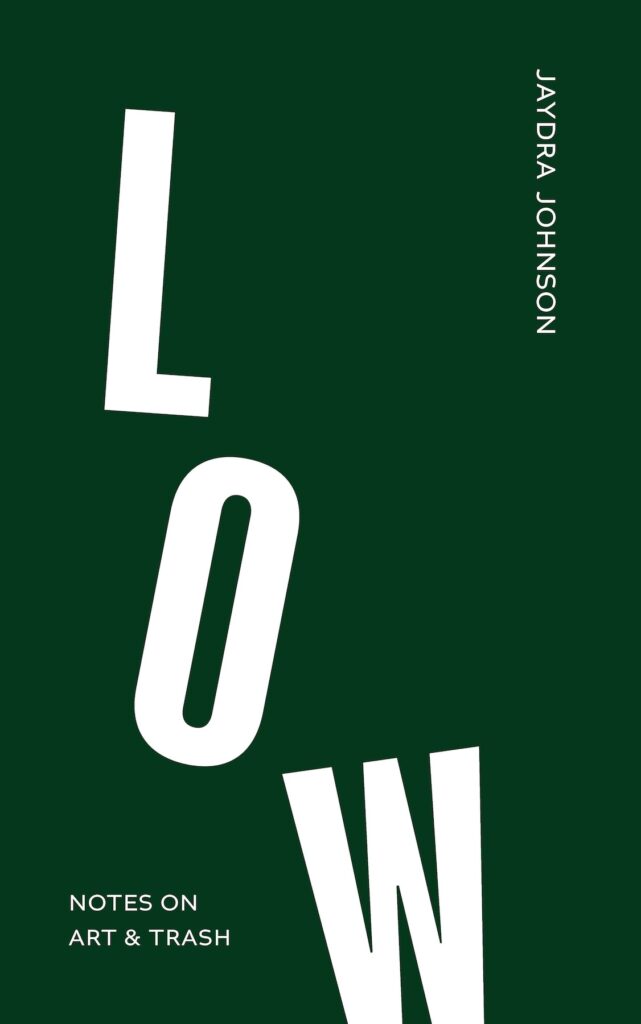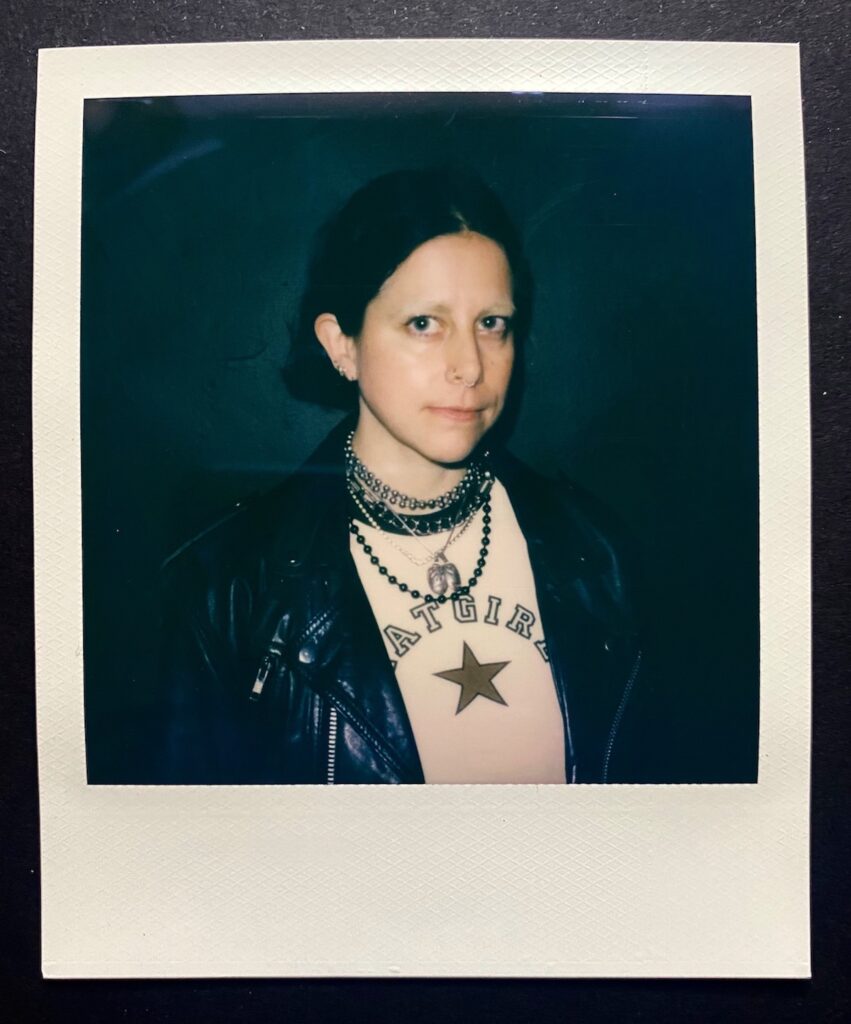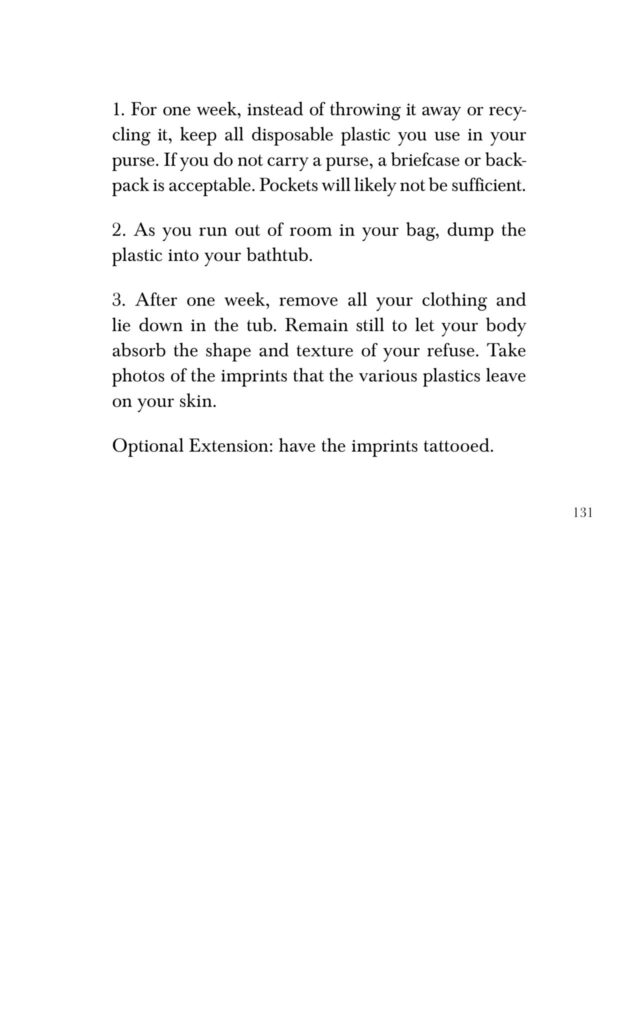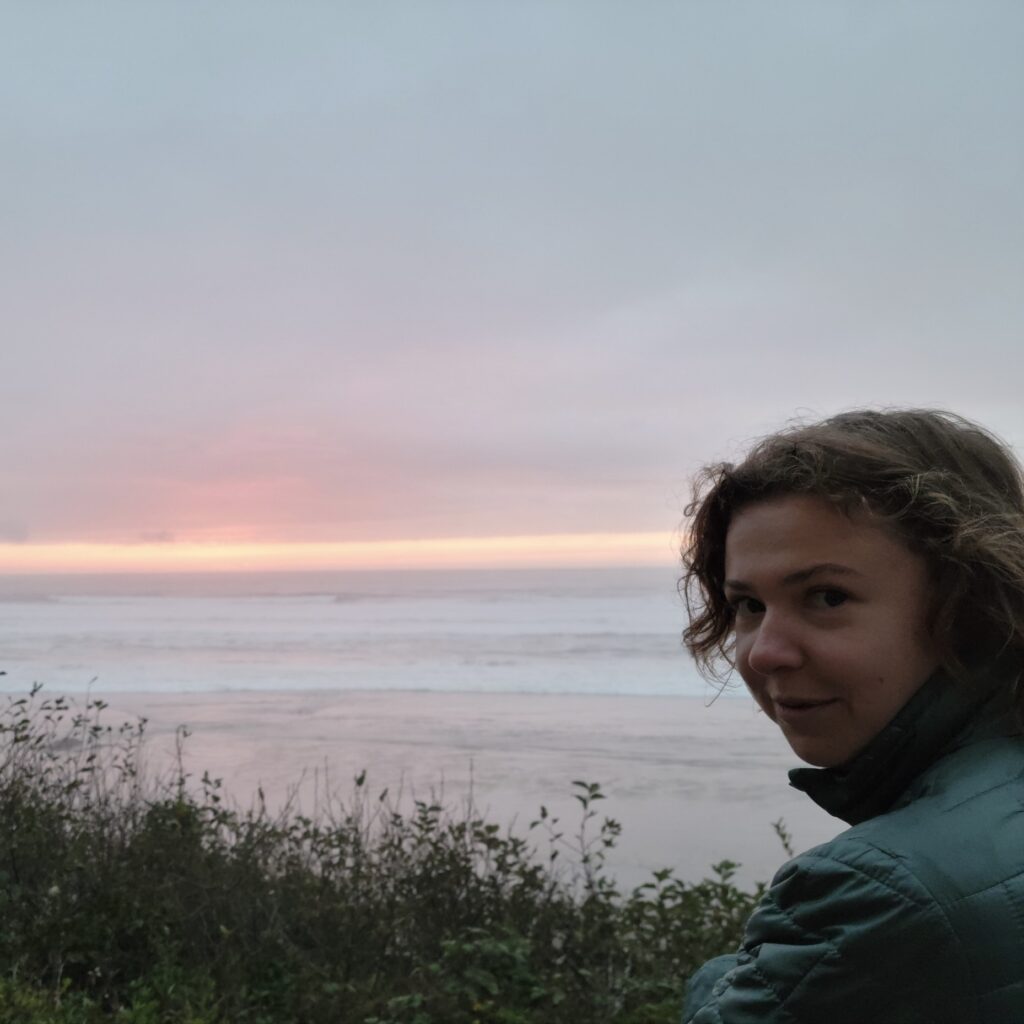Interview with Jaydra Johnson, author of Low: Notes on Art & Trash (2024)
In late December 2024, about six weeks after Fonograf Editions published Jaydra Johnson’s Low: Notes on Art & Trash, Johnson and I embarked on a conversational “two-hour journey”—as she would later, and aptly, describe our video call—in which we discussed the urgent, artful, interrogative, and earnest collage that is this book.
Maggie Nelson selected the book as the winner of Fonograf’s 2022–2023 Essay Collection Contest, and affirms that “Johnson has a real gift for metabolizing and conveying the importance of everything from Othello to performance art. She moves fluently between such analyses and her own vivid, expertly-rendered memories of growing up ‘trash’.”
This interview navigates the spiritual and the utilitarian, genre and form, expectation and opportunity, and the overall stakes of Low.
LM: In Variable West’s review of your art show HARK, in Mother Foucault’s Bookshop (Portland, Oregon), the columnist Kaya Noteboom writes, “Both in Johnson’s writing and collage, art exists as an act of spiritual devotion and to fulfill a utilitarian social need.” Do you resonate with this characterization of your art and, if so, how do you understand the relationship between “spiritual devotion” and “utilitarian social need,” specifically within the context of Low: Notes on Art & Trash?
JJ: I do resonate with that, and I thought that that was such a wonderful little review. I’m very spiritually devoted to not being a theorist and to staying in touch with the utilitarian. I think I’m just really a praxis person, and that’s why I wrote Low as an essay collection or art-critical memoir, and not some academic thesis. With my experience of being in academia, but also coming from very working class spaces, I don’t have a lot of respect for theory—like on its own. I’m not the person that’s sitting around reading Foucault or something. I might dabble a little bit, but it has to be in the service of something I’m writing about that is very material and very physical, and very… like a lived experience of mine or someone else’s.
And I am a spiritual person. I’m not religious, but I believe in living according to a set of spiritual principles. It’s like, okay, you can say you believe in love, but how are you living it? And you can say that you believe in patience, but how are you actually living that out? So again, it’s very practical.
And then I think art—and when I say “art” I include writing in that—I think that does serve as a lived praxis of my beliefs. And it does serve a very utilitarian purpose for me. It’s kind of a compulsion, maybe more than anything, but also… I don’t know, I feel like it does have some social meaning.


LM: One moment that really struck me in Low is when you write, in the piece you call “The Art of War”: “As an artist, I have very little discipline. I am so scared of myself, that everything has to come out in leaps and bursts, otherwise I strangle it.” I’m curious how you navigate this relationship between art and discipline, or if you could talk about that quote in relation to what you were just saying, too: about how your art tends to emerge from you.
JJ: I wrote this essay on my phone while I was commuting home from work on a Friday, and then heading out of town for the weekend to go to Beacon, NY—I think it was my birthday weekend, and my boyfriend and I were going away. I wrote it on the train, and I wrote this essay earlier on in the process of writing Low, probably like halfway through, and I was feeling very tentative about myself as an artist and a writer. I knew that I had something to say about trash but I didn’t know what form it was taking, and it was really a struggle to try to sit down every single day and face this project and try to make sense of the thoughts and all the research that I was doing. And so there was a lot of sitting and writing nothing or forcing words out that weren’t any good at all. I tried to discipline my way into writing a book, because I have a ton of discipline in other areas of my life, but it doesn’t always work. There would be periods of time where I was just completely running from it.
When I wrote this essay in particular, it was a time where I was having a crisis of confidence, and I think there were six months left in my MFA program, maybe even fewer, and for some reason that weekend I just felt like I could write this big long stream, and so that was one of the leaps and bursts.
And I think I felt that way the whole time I was writing the book. It would be really slow for a long time, and then it was like all of a sudden a whole essay would come out. And that pattern continued.
LM: Do you experience discipline differently in your visual art making?
JJ: My visual art making is so different because I don’t care about it being great. And it’s funny because I get more attention for that than probably anything. I mean, not right now because there’s momentum around the book’s release, and that’s all really exciting, but generally speaking, I get a lot more attention, and it’s been a lot easier to make and to show my visual work. And I have wonderings about that. I think some of it is just that it is—for a lot of people—easier to consume visual stuff.
I don’t find I have to be as disciplined with it. It comes from a very different place and is so much easier to make. Like truly minute to minute. I don’t really need discipline to make my visual work because it feels good, and writing doesn’t feel good. And I have no skin in the game with my visual art.
LM: Have you always found that with writing?
JJ: No, when I was first starting to mess around more with writing, in my late twenties, I was part of this writing group and we did a quarterly zine. When I was writing that stuff, which was mostly poetry, it didn’t feel very hard or require much discipline. But again, it’s because I wasn’t trying to ever release it, or it didn’t feel like there was something that I had to say and if I didn’t say it, I was going to die. But that’s how it felt with Low.
LM: It sounds like maybe the stakes feel a lot higher, or a lot more personal in your essay writing, in relation to any other art form. Does that feel true?
JJ: Yeah. It feels a lot more important. Like the content that I’m writing about and the concepts I’m concerned with in my essay writing feel very tender and deserving of a certain gravity that I don’t feel with other things I make, because if I’m writing fiction, for example, I’m just having fun and writing about… kids letting off bottle rockets inside of a Walmart or something. It’s not all that serious.


LM: I know that other interviews have variously focused on your experience and writing in relation to the term “white trash.” So excuse me if this question feels redundant, but I’m curious as to how or when, in your writing of Low specifically, you started using that term, and how? Or, in your vision or writing of Low, when did that term become an important thread within the book to you, if you understand it that way?
JJ: The book that I proposed to get into the Hunter’s MFA program was born from this moment when I was with a new friend. We were going to the river. We pulled up and she made this comment about these “disgusting white trash people.” And I was like, oh, I’m passing. And that was kind of the first time I ever had heard someone make a comment like that that wasn’t intra-group shaming or something like that. She genuinely was this outsider. She was more of a wealthy person, and I was astonished by how it felt to hear that, and also how it felt really bad to not be seen as one of them, which surprised me because I’d been running from that my whole life for that very reason: because I know how much “white trash” people are despised.
So that was kind of the moment, and I wrote about that in my book proposal, but I wanted to do this as a more investigative project, where I would go to different places where people were living in a very intimate way with garbage and write about what I found there. I was modeling it after Rising by Elizabeth Rush. I love that book. It’s about sea level rise, and she went to, like, four or five locations where people were confronting that in some way. And I was like, I want to do that with trash and see what I find. But then, when COVID happened, I was no longer going to be able to go on these reporting trips, and I also didn’t really know what it would take to do that.
So I started writing about myself, and the first essay I wrote was about my mom, and the Dollar Store as a place where people are interfacing with trash. I got into white trash culture some. And my workshop group responded to the parts that were about me and my life and my mom, and not as much to the researched parts of it. And so that’s kind of how the whole thing started. There was always going to be a message about trash people, but it wasn’t always going to be told through art. I didn’t even realize the book was about art until very late in the process. But yeah, people really responded to the parts that were about me, which irritated me profoundly.
LM: Did it surprise you?
JJ: Yeah. Definitely.
LM: Did it encourage you to lean further into personal narrative, or did you feel yourself push back against that positive response somehow?
JJ: I definitely felt myself going, but I’m not the interesting part of this. You know, I came into this program because it’s a creative nonfiction program, not a memoir program. And I was like, I don’t write memoir. I don’t want to write a memoir. This isn’t about me. This is about these other people. I’ve always really loved those 10,000 word Harper’s-style features. And so that’s the kind of thing I wanted to do: go and write these long-form, reported, very character-centered essays—but not about me—and so I really pushed back against that, and then over and over they were like “this part right here about you is really interesting,” and I was like, you guys suck, bro. So that’s kind of how that happened.
LM: I remember you speaking in another interview about how, at least initially, you began to incorporate art references into your essays because you felt that your own experience wasn’t enough, and needed the scaffolding of external references. Have you begun to feel more comfortable just narrating about or through your own experiences?
JJ: I think so. I think I’m getting there, and some of my new work is more in the extremes of either it’s just me talking about my experience of or thoughts about something—with hardly any research—or I’m writing about artists and my experience isn’t in there at all. My actual skill has improved in terms of being able to write a compelling essay where I don’t have to be the main character or even a character. I think that was a skill issue in the beginning. When I would write about myself, it was a lot more beautiful or easeful or vivid. And when I was writing about art or other things I had researched, I was more clinical.
And I really resisted the idea that writing needed characters, basically, whether or not it was fiction. I do push back against the supremacy of the narrative. Like I’ve been researching a lot of stuff about clowns for my new collection. One thing I really love about the clown is that she exists outside of the universe of narrative. She is a kind of a chaos agent or an alien that is not ever part of a coherent narrative arc; the clown interrupts that narrative arc. People might be trying to put this story on the clown, but then in the end the clown fucks it up somehow.
So I do think that that lives on inside me: that idea that just a scene or a set of facts or something small can be enough. And at the same time, while I disagree that writing needs to be narrative in some way for people to access and enjoy it, my experience shows that the things I write that are more narrative are a lot more interesting and accessible to people and in many ways communicate my ideas more effectively. So, that’s an interesting tension that I enjoy thinking about… do I enjoy writing into that tension? I don’t know. Maybe not.
And Low is certainly not for everyone. Because I think people have an idea about what art criticism is. And, you know, it’s not very plot driven. I had a big argument with my publicist about whether or not this is a memoir. And I don’t think it is, and I think that if I were a man, I wouldn’t have to say it’s a memoir. But it is easier to explain it to people that way.
LM: I hear you. I read in another interview that people kept asking you to make “The Art of War” more narrative, and that you did, and that you might regret it. I’m really curious how those drafts look in relation to each other, and about that process of building narrative into the essay.
JJ: Yes. So it actually looks very similar to how it looked when it came out of me in a burst that week that I wrote it. I was never able to change it much. It’s modeled after this book by Cody-Rose Clevidence: Listen My Friend, This Is the Dream I Dreamed Last Night (The Song Cave, 2021), and their entire book is written in this way. It’s a single paragraph—it’s about 130 pages or something—and it’s one of the most breathtaking things I’ve ever read in my entire life. It’s this accretion that feels random and very challenging to make sense of. I’m really into things that are hard. Hard to read, hard to understand, difficult to look at—for whatever reason—and, you know, reading that book is so overstimulating, and bewildering, maybe. But after a certain point, I had the experience of suddenly all these threads becoming clear, and then it all came together at the end for me… And I was like, I want to do something like that.
Dodie Bellamy also has an essay called “Fourth of July 2011” where she did a similar thing. It is a single-paragraph essay about the Casey Anthony trial, and Fourth of July, and war, and violence, and I just thought, now I really want to do something like that.
So as people read it in workshops, they were just like, “I don’t know what’s going on with this,” and “I just can’t get a foothold, and I was like, “yeah, that’s the point.” The point is that it’s this inundation. It’s like this flood, it’s like you’re lying in the bottom of the landfill being buried with all of this trash, and this is the experience I had of writing this book, and researching for this book: having so much information and just kind of drowning in it, and not really knowing how to make a coherent narrative out of something that’s so senseless and so horrific and so heartbreaking, and for so little reason. Like, what’s the line in there about… How much luxury would be enough to justify it, how many dollars? It just doesn’t make any sense. And so I wanted this to kind of not make any sense, but also have people be able to maybe pick up on the threads holding it together. I love this essay. I don’t think people like it very much, which is totally fine.
LM: No, I love this one. It does feel to me really inundating and almost frantic… or grasping. It’s so evocative.
JJ: I thought of this as an art piece itself, too. Because the form is so important to the content and the function and the meaning of the piece. In another interview I did, the interviewer talked about how it seems like I’m building towards this certain argument about the redemption of trash, and then this essay kind of just blows the whole thing up at the end.
LM: Would you consider this piece a poem, or any of the other pieces in this collection a poem?
JJ: I guess I could call this one a prose poem. I think in a very early iteration of the book I turned in—one that I wrote during winter break between first and second semester of my MFA—I put together basically a zine ’cause I really was inspired by Claudia Rankine’s earlier book, Don’t Let Me Be Lonely (Graywolf, 2024); I love that book so much. And I wanted this book to be like that. And so I made a very short version of it. And then nobody liked it: “This is too weird, and it’s too many different things!” Looking back, I’m like, okay, I agree with that. It was too many different types of experiments right next to each other, and it was much more of a poetry book at that point, and I am glad that I went in the direction of making it a collection of more traditional recognizable essays, but there is poetry behind this book. And the rituals between the essays are a vestige of those poetic experiments as well.
LM: I suppose for me, particularly in this last essay, I feel a poetic sensibility: it’s so much about affect or effect, and so much about form, too. And to me, those feel like poetic concerns, whereas the privileging of narrative—is so frustrating!—and so much more of an essay thing. I also find trouble with people’s privileging of narrative; if a piece is written with a poetic sensibility and not a narrative sensibility, you have to understand it within that context. So I hear you.
JJ: Yeah, thank you. And I feel the same, though I’ve never heard it said quite that way. Because people ask, “Oh, what are you reading right now?” or, “What do you like to read?” and I’m just like, “Well, I don’t really read novels.” I feel like everyone reads novels and when I answer with what I am actually reading, they are disappointed. I read annoying nonfiction and weird poetry.
LM: Is there anything else you want people to know about you or your book?
JJ: I think that I… gosh, what do I want people to know about it? I’m not deluded or anything—I don’t think I am some super original genius—but I think it’s different from a lot of stuff that’s out there. That feels important, the singularity. Which is why it’s so hard to explain what it is and what it’s about for me. There’s not much I can compare it to. I think of it as a collage of ideas and stories and descriptions. And I love that I was able to put my collages in it even though there wasn’t a budget to print the color. I hope people find that it’s worth their time, if I’m honored with someone’s time.
And if I can do this, anyone can do it. I say that to my students all the time. I’m like, “I went to a high school exactly like this one. The ceiling was falling down. Whatever your dream is, if you have a dream, I’m not saying it’s definitely going to come true, but it doesn’t mean that you can’t do everything in your power to try.” I really thought when I was growing up that this kind of thing wasn’t for people like me. And I did not think that I could ever publish a book or be a working writer and artist in New York City or anything like that.
I felt very inadequate for a long time, and then eventually I didn’t. There was a point when I started taking myself seriously, that’s all I can really say… and in a good way, not in a way that prevented me from doing the work, but really seeing myself as a meaningful, contributing member of arts and letters. This book is symbolic of that transformation for me, and I think if there is any narrative arc in the book, it’s that.
And a lot of it is luck. Like if you’re not born into it, then it’s like 50% luck, 50% hard work, and there’s a ton of people who aren’t ever appreciated or recognized for their creative work. But some of us are. And so whatever people are doing, I encourage them to do it. And just pretend. You might get lucky.
Reading Lists:
 Jaydra Johnson: Eros the Bittersweet by Anne Carson, Narcan Incantations by Joshua Pollock, & Revolutionary Algorithms by Torey Akers.
Jaydra Johnson: Eros the Bittersweet by Anne Carson, Narcan Incantations by Joshua Pollock, & Revolutionary Algorithms by Torey Akers.
 Lydia Mead: Congenial Spirits: The Selected Letters of Virginia Woolf (selected and edited by Joanne Trautmann Banks), and, with Constant Critic co-conspirator David Gorin, Cody-Rose Clevidence’s Listen My Friend, This is the Dream I Dreamed Last Night.
Lydia Mead: Congenial Spirits: The Selected Letters of Virginia Woolf (selected and edited by Joanne Trautmann Banks), and, with Constant Critic co-conspirator David Gorin, Cody-Rose Clevidence’s Listen My Friend, This is the Dream I Dreamed Last Night.